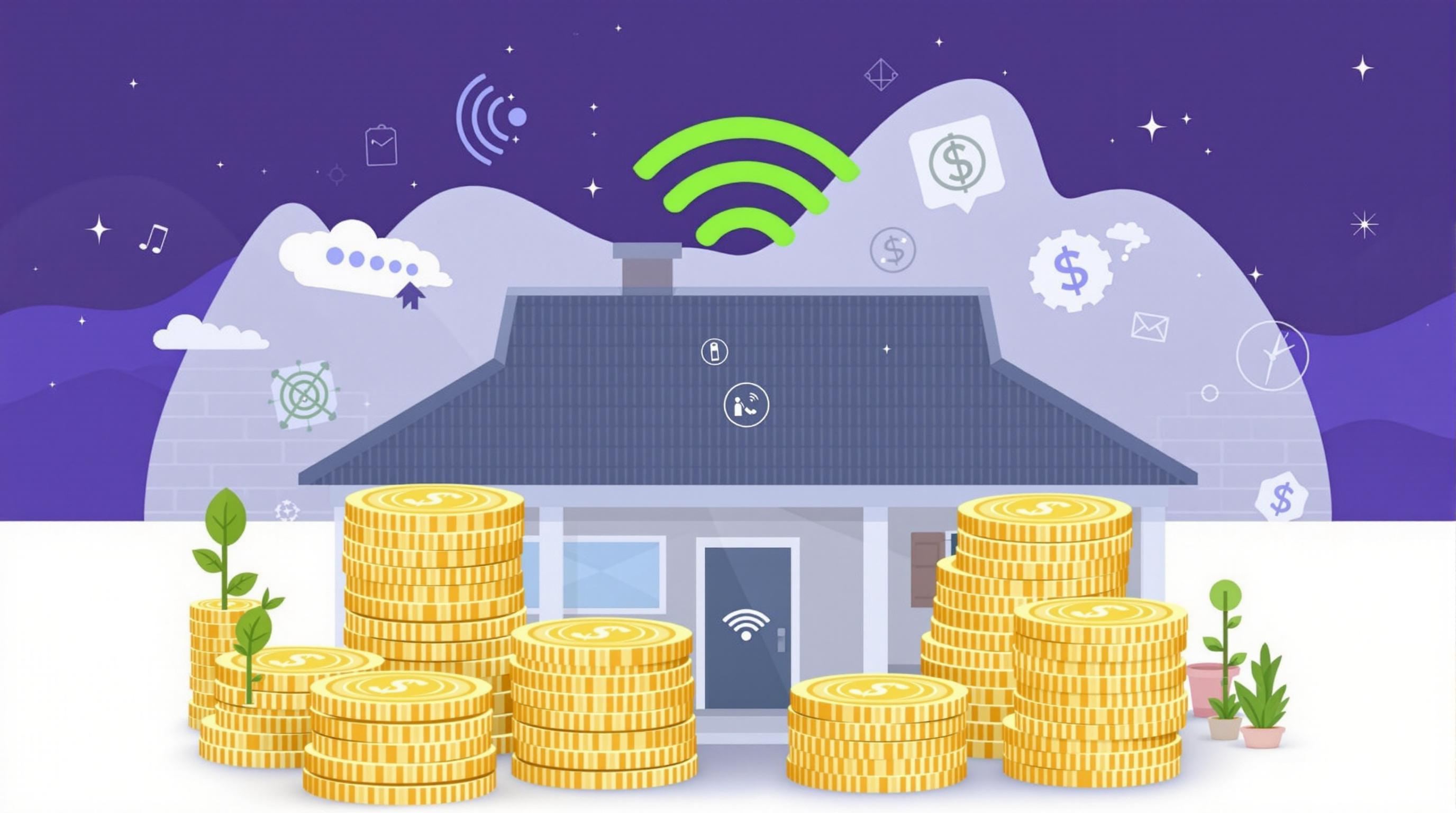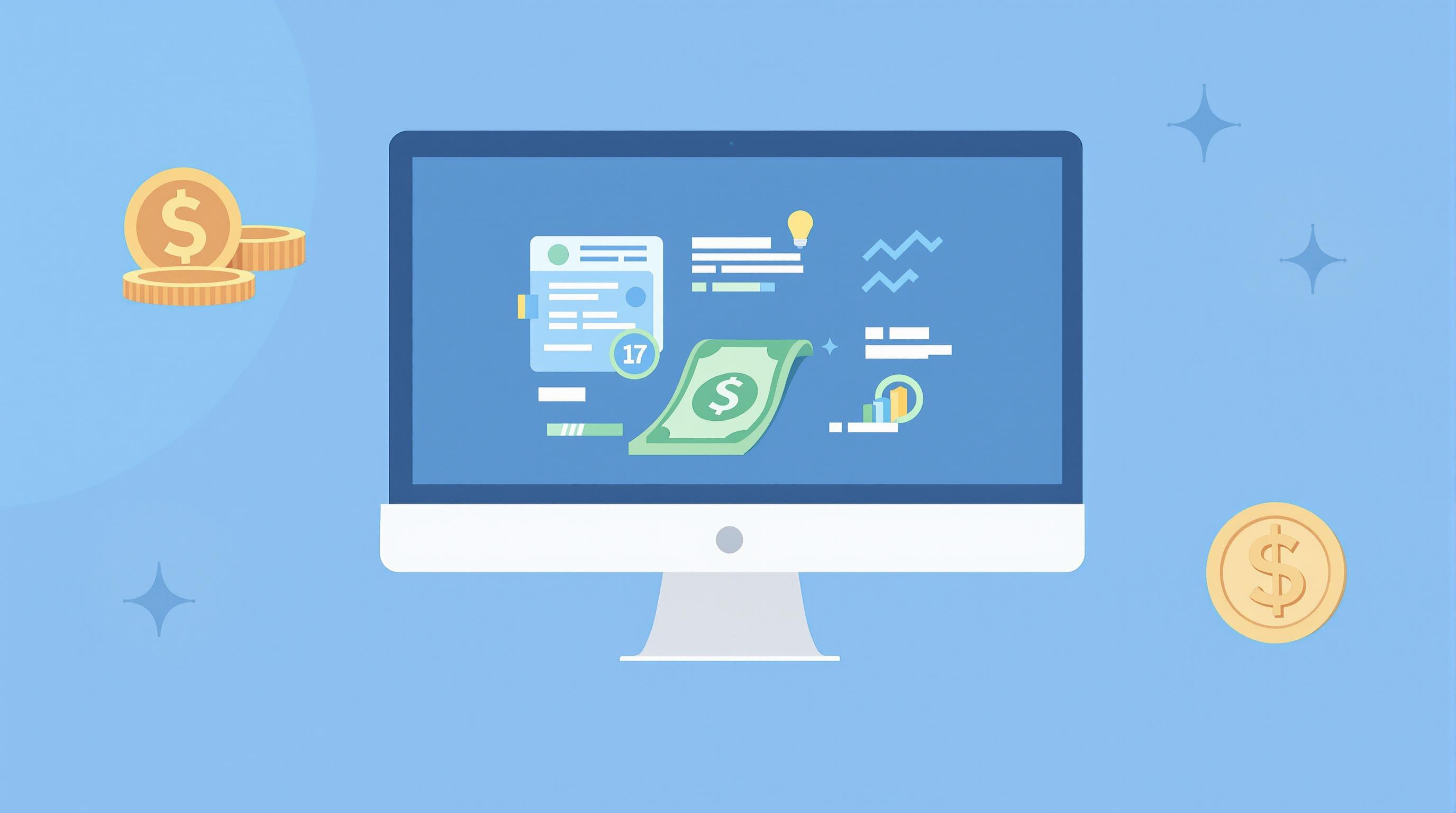Related Articles
- How Climate Change Litigation Is Reshaping International Investment Risk Assessment and Capital Flows
- 7 Revolutionary Smart Home Investments from the Last Five Years That Generate Steady Passive Income in 2024
- How Virtual Reality Is Changing Family Conversations About Inheritance and Future Financial Transparency
- The Influence of Seasonal Affective Disorder on Designing Adaptive Support Networks for Mental Wellness
- Top 5 Game-Changing Green Bonds Released Since 2019 Disrupting Conventional Sustainable Finance Models
- 6 Groundbreaking Global Robo-Advisors Unveiled Since 2019 Transforming Automated Wealth Management
7 Revolutionary Smart Home Investments from the Last Five Years That Generate Steady Passive Income in 2024
7 Revolutionary Smart Home Investments from the Last Five Years That Generate Steady Passive Income in 2024
Investing in smart home technology over the past five years has unlocked a treasure trove of passive income opportunities that are flourishing in 2024. From rental income to energy savings, these seven revolutionary smart home investments showcase how technology and finance intertwine brilliantly.
Hi there! I’m Jade, a 29-year-old tech enthusiast who’s been fascinated by smart homes since I got my first voice-activated assistant back in 2018. Over time, I noticed how these innovations don’t just add convenience—they’re quietly earning money for people in ways most don’t realize.
1. Solar-Integrated Smart Panels: Harvesting Income and Light
Solar technology has evolved beyond rooftop panels thanks to smart integration. These panels adjust their angle and output based on real-time weather data, optimizing energy production. According to the U.S. Energy Information Administration, households with solar panels can reduce electricity bills by up to 65% on average.
Platforms like SolarCoin, a digital currency rewarded to solar electricity producers, let owners earn passive income for every kilowatt-hour generated. For example, Emily from Arizona invested in smart solar panels in 2019 and now collects steady payouts every month while slashing her utility bills.
A Case Study: Passive Earnings from Smart Solar Systems
Emily’s initial $12,000 investment started returning dividends within 18 months. As of 2024, she reports approximately $200 monthly in combined energy bill savings and SolarCoin earnings—nearly $2,400 annually. The smart panels’ self-optimization algorithm ensures peak efficiency, enabling this dual-income stream.
3. Intelligent Energy Storage: Batteries That Pay You Back
Battery storage for homes has come a long way. Instead of just storing excess solar energy, these systems now communicate with the grid to sell stored electricity during peak demand hours. Tesla’s Powerwall and LG’s Chem RESU are popular options equipped with this functionality.
Statistics from BloombergNEF indicate that smart battery owners can make an additional $500 to $1,000 annually by participating in grid demand response programs. This means your home battery becomes an energy merchant, autonomously generating income while providing backup power.
4. Smart Rental Properties: The Landlord’s Digital Ally
Owning rental property turned smart means integrating IoT devices for remote management and tenant experience enhancement. Devices like smart locks, thermostats, and leak detectors not only reduce maintenance costs but also help attract high-paying tenants.
A landlord in Seattle retrofitted his duplex with Nest thermostats and August smart locks in 2020. Since then, he’s increased rental income by 12% as tenants value the convenience, and he saves approximately $150 monthly on maintenance. This is a prime example of smart technology turning real estate into a more lucrative passive income source.
The Human Angle: Streamlining Property Management
Imagine not having to physically show up for a rental inspection or worry about lost keys. Smart home systems empower landlords in multiple states to manage properties at scale, creating a more passive revenue stream by cutting down direct involvement.
2. Voice-Activated E-Commerce Hubs
This might sound futuristic, but smart home devices like Amazon Echo or Google Nest have become effective retail storefronts in your home. Affiliate marketing integrations allow users to recommend and sell products via their networks with commissions flowing back passively.
Young entrepreneur Max, 22, transformed his smart speaker into a commission-earning partner. By curating and sharing product recommendations using voice prompts, he reports a 15% month-over-month increase in passive affiliate income, averaging $350 per month now.
Statistics to Keep in Mind
Voice commerce is projected to reach $80 billion in annual sales by 2025, per OC&C Strategy Consultants. Early adopters of smart speaker affiliate marketing are strategically positioned to ride this wave profitably.
5. Automated Home Security Systems: Protect and Profit
Modern security systems equipped with AI-powered cameras, motion sensors, and monitoring services don’t just protect your home—they create opportunities for passive income. Some insurance companies offer discounts or rebate programs for homes with certified smart security, which indirectly adds to your earnings.
More innovative owners are leasing their smart home surveillance data anonymously to research platforms, earning $10-$30 per month without compromising privacy. Though niche, this is a growing frontier.
According to a 2022 Consumer Reports study, homes with smart security systems see a 30% lower risk of burglary, resulting in insurance premiums dropping by an average of 15%.
6. Smart Appliances with Advertiser Partnerships
Ever thought your refrigerator could make you money? Certain smart appliances now enable partnerships with brands for targeted marketing and content delivery, sharing a portion of the advertising revenue with homeowners. While this sounds unusual, it’s a trend growing in South Korea and parts of Europe.
Consider Jane, 44, in Seoul, whose smart fridge streams personalized recipe ads and grocery deals. She earns about $20 per month in ad revenue, turning mundane kitchen appliances into micro-income generators. This innovation underscores a broader shift toward monetizing everyday devices.
7. Vacation Homes with Smart Automation: The Passive Income Powerhouse
The vacation rental market is fiercely competitive, but smart home tech can tip the scales favorably. Automated check-in/check-out systems, smart thermostats, and energy management optimize tenant satisfaction and reduce overhead.
A couple in Florida outfitted their beach house with full smart home automation in 2019. By 2024, they report an additional $5,000 yearly in rental income thanks to higher booking rates and lower operational expenses. Platforms like Airbnb have also begun integrating smart home compatibility scores, increasing visibility for such listings.
Humorous Reality Check: When Your Smart Home Outsmarts You
Not everything is sunshine and smart thermostats. My neighbor once spent a full hour negotiating with her system because it refused to recognize her voice and kept cranking the heat while it was 90°F outside. But that's part of the evolving charm—and learning curve—of living with intelligent tech while earning from it!
Final Thoughts: Why Smart Home Investing is a Game Changer
The marriage of technology and home management has transitioned from convenience to lucrative investment. Over the last five years, innovations have transformed smart homes into hubs of passive income that blend sustainability, safety, and comfort.
Whether you’re 16 or 70, beginning your smart home investment journey in 2024 holds promise. The key lies in picking the right blend of technology that aligns with your lifestyle and income goals. As we continue to tiptoe toward a fully automated future, the homes that generate wealth silently will be the true pioneers.
References:
U.S. Energy Information Administration, “Solar Panel Benefits,” 2023.
BloombergNEF, “Home Battery Storage Market Insights,” 2022.
OC&C Strategy Consultants, “Voice Commerce Market Forecast,” 2023.
Consumer Reports, “Smart Home Security Impact on Insurance,” 2022.




